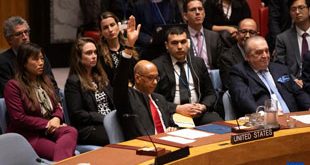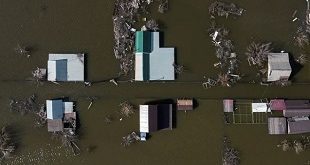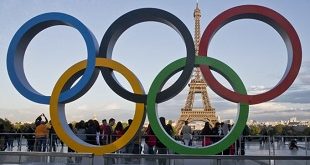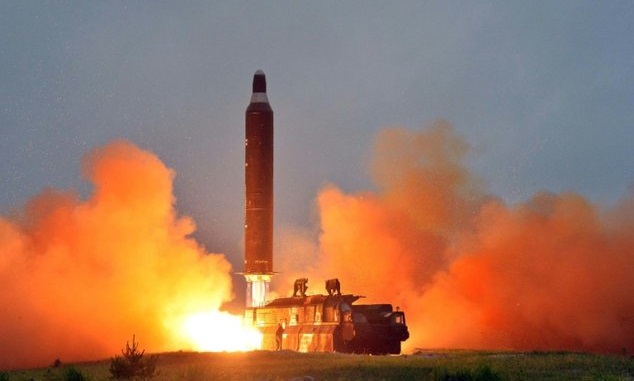
Trump calls for tougher sanctions after N. Korea missile
Seoul, South Korea | AFP | President Donald Trump called for tougher sanctions against North Korea after it fired a ballistic missile Sunday in an apparent bid to test the South’s new liberal president and the US.
“Let this latest provocation serve as a call for all nations to implement far stronger sanctions against North Korea,” the White House said in a brief statement.
The missile flew more than 700 kilometres (435 miles) before landing in the Sea of Japan (East Sea) surrounded by the Korean peninsula, Japan and the Russian far east.
It impacted “so close to Russian soil … the president cannot imagine that Russia is pleased,” the White House said.
North Korea “has been a flagrant menace for far too long,” it said.
Multiple sets of UN and US sanctions against North Korea have done little to deter Pyongyang from pursuing its nuclear and missile ambitions.
Trump has threatened military action against the North but recently appeared to have softened his stance, saying he would be “honoured” to meet leader Kim Jong-Un under the right conditions.
New South Korean President Moon Jae-In, who was inaugurated on Wednesday, slammed the missile test as a “reckless provocation” after holding an emergency meeting with national security advisors.
He said the government strongly condemned this “grave challenge to the peace and security of the Korean peninsula and the international community,” his spokesman Yoon Young-Chan said.
– ‘Seeking leverage’ –
Moon, unlike his conservative predecessors, advocates reconciliation with Pyongyang but warned Sunday that dialogue would be possible “only if the North changes its attitude”.
Moon had said in his inauguration speech that he was willing to visit Pyongyang “in the right circumstances” to defuse tensions on the Korean peninsula.
“The North is apparently trying to test Moon and see how his North Korea policy as well as policy coordination between the South and the US will take shape,” said Yang Moo-Jin, professor at the University of North Korea Studies in Seoul.
The launch was also aimed at “maximising the North’s political leverage” ahead of possible negotiations with the US, as Pyongyang and Washington both recently signalled they were open to talks, he added.
“The North wants to show before negotiations that their precious, powerful weapon is not something they would give up so easily,” Yang said.
Moon and Washington have signalled an interest in negotiations to ease months of tensions.
Choe Son-Hui, a senior official at the North’s foreign ministry handling its US policy, also said Saturday the North would be willing to hold talks with the US if the conditions are right.
Washington has been looking to China for help in reining in Kim and the missile test is likely to embarrass Beijing, which is hosting a summit Sunday to promote its ambitious global trade infrastructure project.
China, the isolated North’s sole major ally and economic lifeline, has been reluctant to exert pressure to upset the status quo in Pyongyang and risk an influx of refugees from its neighbour.
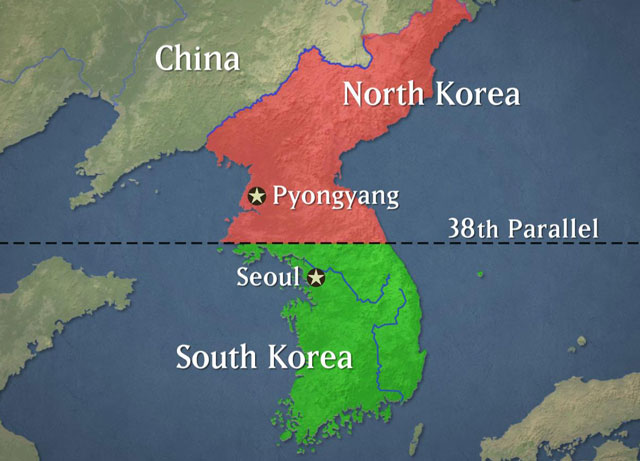
– ‘Fast progress’ –
The latest test was also the North’s first launch since a controversial US missile defence system deployed in the South became operational on May 2 and follows a failed April 29 ballistic missile test.
Japanese Prime Minister Shinzo Abe slammed the latest missile launch as “totally unacceptable” and a “grave threat” to Tokyo.
“We strongly protest against North Korea,” he said.
One recent missile launch staged in March saw three North Korean missiles falling provocatively close to Japan, sparking alarm in Tokyo.
The North has staged two atomic tests and dozens of missile launches since the start of last year in its quest to develop a missile capable of delivering a nuclear warhead to the US mainland.
Most experts have doubted that the North has developed an intercontinental ballistic missile (ICBM) with that range.
But many say the isolated nation has made a great progress in its nuclear and missile capabilities since Kim took power after the death of his father and longtime ruler, Kim Jong-Il, in 2011.
The US Pacific Command said Sunday’s launch did not appear to be an ICBM.
Yang said however it showed “fast progress” in Pyongyang’s missile capability.
The missile was fired from a site near the northwestern city of Kusong. A previous test at the same site in February sent a missile 500 kilometres, far less than Sunday’s launch.
 The Independent Uganda: You get the Truth we Pay the Price
The Independent Uganda: You get the Truth we Pay the Price
